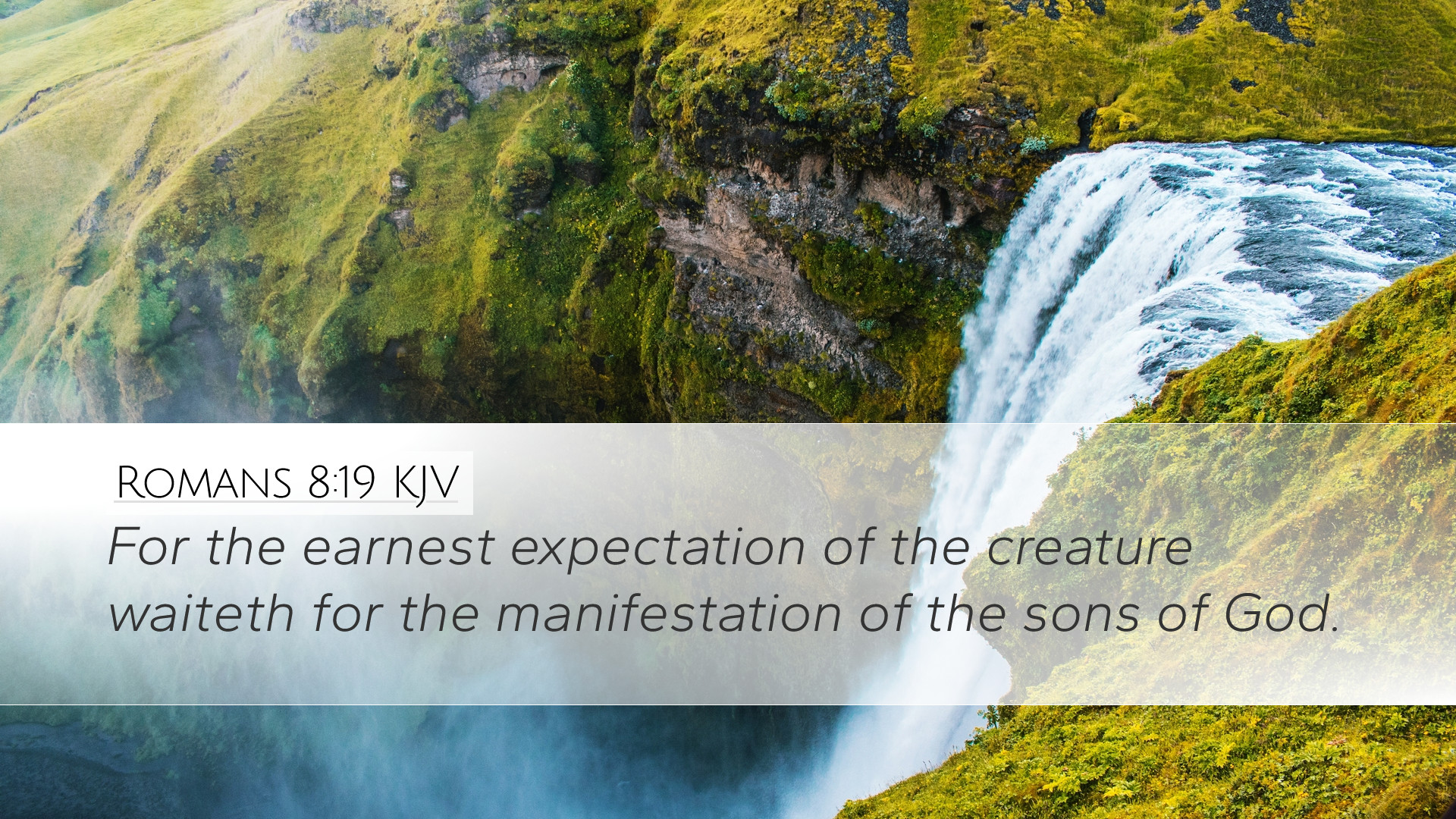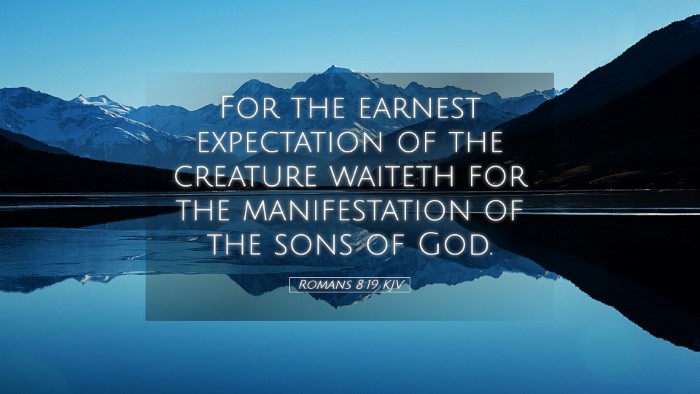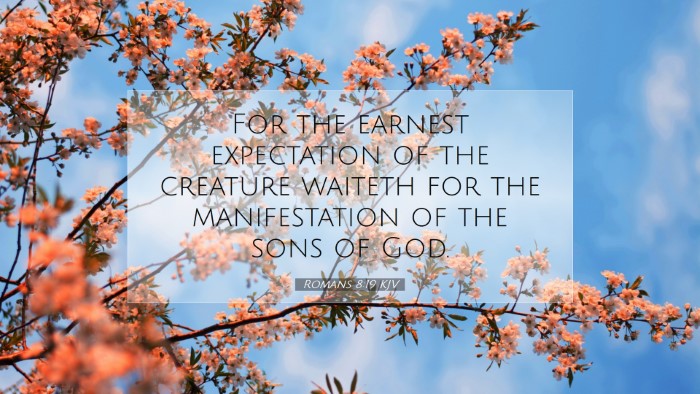Commentary on Romans 8:19
Romans 8:19 states: "For the earnest expectation of the creature waiteth for the manifestation of the sons of God." This verse captures a profound theological truth regarding creation's anticipation for redemption.
Introduction
In analyzing this verse, we turn to several public domain commentaries that offer rich insight into its meaning. Notably, the commentaries of Matthew Henry, Albert Barnes, and Adam Clarke provide a comprehensive understanding of the theological implications of Paul’s statement.
Context of Romans 8
Paul speaks to the condition of humanity and creation in the broader context of suffering and glory. The chapter introduces the promise of future hope amidst present trials, emphasizing the dichotomy between human suffering and divine glory that awaits.
Interpretation of Key Terms
-
Earnest Expectation: This phrase in the original Greek suggests a strained anticipation, a longing for something to be revealed. Both Henry and Barnes emphasize that this expectation is not passive but filled with eager hope.
-
Creature: Refers here not only to humanity but to all created things. Clarke points out that this includes the entire order of creation which has been subjected to futility and decay due to sin.
-
Manifestation of the Sons of God: This phrase implies the revelation of believers as God’s children in glory. It entails the complete restoration and vindication of the righteous, affirming the ultimate triumph of Christ and His followers.
Theological Insights
The overarching theme here is the connection between creation and redemption. In this verse, Paul presents the idea that all of creation is intertwined with humanity’s fate. The hope of creation lies not in itself but in the revealing of the children of God.
Matthew Henry's Perspective
Matthew Henry’s commentary highlights the fact that all creatures, though long subjected to vanity and bondage, are expectantly looking forward to the glorious liberty that will be brought forth at the revelation of God’s children. He emphasizes the deep desire of creation for redemption, indicating that the state of the world reflects the spiritual condition of humanity.
Albert Barnes' Analysis
Albert Barnes adds to this discussion by noting that the "creature" refers to everything created, expressing a keen sense of waiting. He suggests that creation’s hope is in the restoration of God's intended order, distanced from the corruption brought forth by sin. Barnes stresses that creation’s anticipation emphasizes God’s ultimate redemptive plan through Christ and the promise of resurrected life.
Insights from Adam Clarke
Adam Clarke's commentary delves into the emotional aspect of this waiting. He expresses that creation’s expectation is a reflection of its hope in the liberation from decay and suffering, aspiring for a time when God's children will be fully revealed in glory. Clarke posits that the current state of creation is like a pregnant woman in labor, awaiting the birth of something glorious.
Application to Theology and Ministry
This verse is rich with implications for theology and practical ministry. It reminds pastors, students, and theologians of the hope that underlies Christian teaching—the hope for restoration that aligns with God's ultimate purpose.
Encouragement in Suffering
In pastoral care, Romans 8:19 encourages believers who experience suffering. Just as creation waits for redemption, so too should believers find solace in the promise of future glory amidst current trials. This verse can serve as a reminder that suffering is not in vain but part of a divine plan leading to ultimate restoration.
Environmental Stewardship
Furthermore, the connection of creation's hope to humanity’s redemption encourages a Christian perspective on environmental stewardship. Understanding that creation "waits" for redemption compels Christians to actively care for the world around them, recognizing its inherent value in God's creation.
Hope for the Future
The anticipation expressed in Romans 8:19 offers a future orientation that helps shape Christian eschatology. The promise of the children of God manifested in glory provides an anchor for believers, instilling hope in the face of life's uncertainties.
Conclusion
Romans 8:19 encompasses a world full of expectation, intertwined with the hope of redemption and restoration for the whole of creation. Drawing from the insights of Matthew Henry, Albert Barnes, and Adam Clarke, we gain a deeper understanding of this significant scripture. It challenges believers to recognize their role in God's redemptive narrative, to cling to the hope of future glory, and to engage with creation in a way that honors God's original intent. This verse remains a profound reminder of God's overarching plan through Christ, linking creation's longing with the believer's identity as children of God awaiting full manifestation in the kingdom to come.


